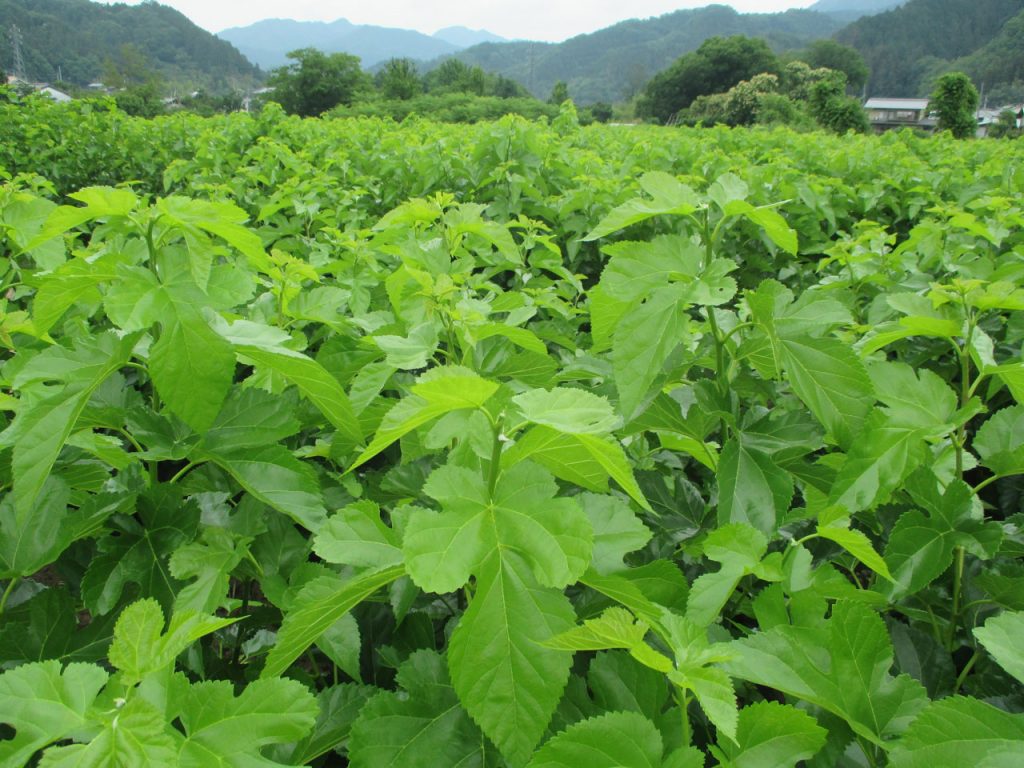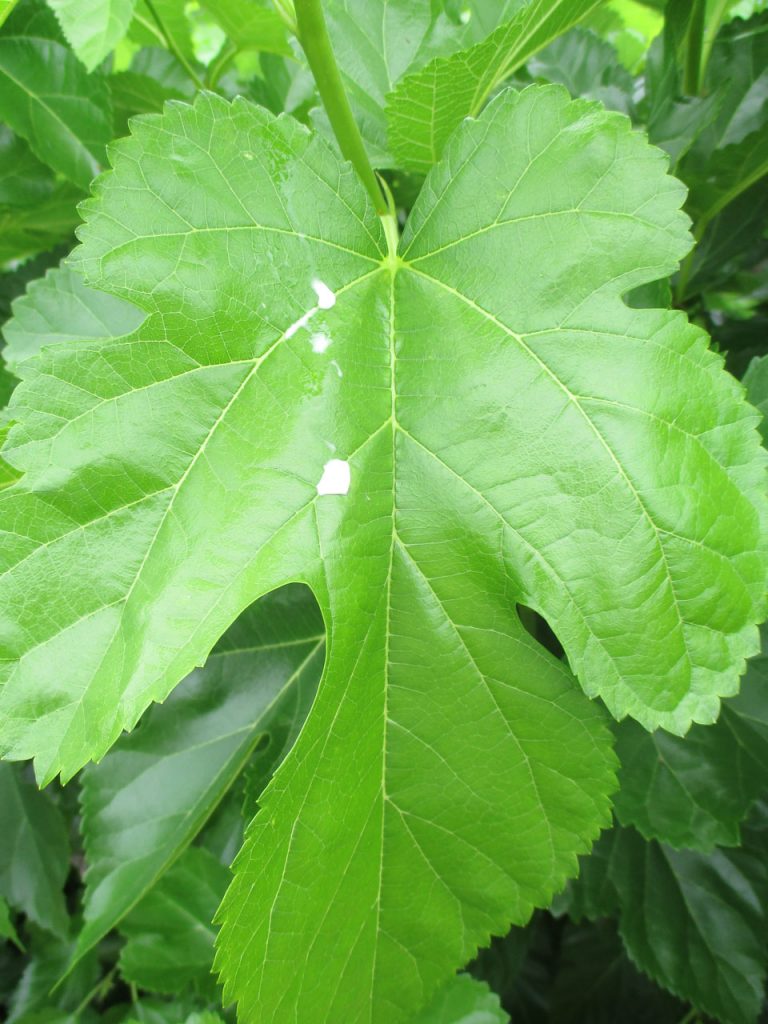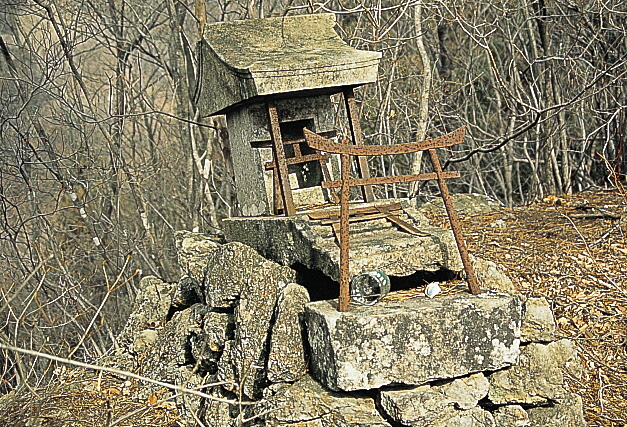
Raising silkworms was a major cottage industry in Gunma Prefecture, including in and around Shimonita, until the mid-twentieth century. Since silkworms feed on mulberry leaves, it was common for local farmers to grow mulberry bushes, which thrive in Shimonita’s sandy soil. When silk production dropped after World War II, the farmers growing mulberry bushes were forced to find other uses for mulberry or change crops.
Mulberry leaves have several health-promoting properties. They are high in calcium, iron, potassium, magnesium, and polyphenol antioxidants. Mulberry leaf infusions have also been found to reduce blood sugar.
Kanbe Ryusuke, whose grandfather grew mulberries, understood the market potential of these health benefits. Today he maintains 25,000 organic mulberry bushes, from which he produces dried, powdered mulberry leaf. The product is designed to be easier for people to consume and can be enjoyed in various ways.

Mulberry leaf powder can be used much like matcha green tea powder to make tea or to flavor ice cream or other sweets. Unlike matcha, it is caffeine-free. It can also be used to flavor savory dishes, for example to replace spinach in green curries. For a completely Shimonita-sourced health food treat, try mulberry leaf bubble tea using local konnyaku beads in place of tapioca.
Raising silkworms was a major cottage industry in Gunma Prefecture, including in and around Shimonita, until the mid-twentieth century. Since silkworms feed on mulberry leaves, it was common for local farmers to grow mulberry bushes, which thrive in Shimonita’s sandy soil. When silk production dropped after World War II, the farmers growing mulberry bushes were forced to find other uses for mulberry or change crops.
Mulberry leaves have several health-promoting properties. They are high in calcium, iron, potassium, magnesium, and polyphenol antioxidants. Mulberry leaf infusions have also been found to reduce blood sugar.
Kanbe Ryusuke, whose grandfather grew mulberries, understood the market potential of these health benefits. Today he maintains 25,000 organic mulberry bushes, from which he produces dried, powdered mulberry leaf. The product is designed to be easier for people to consume and can be enjoyed in various ways.
Mulberry leaf powder can be used much like matcha green tea powder to make tea or to flavor ice cream or other sweets. Unlike matcha, it is caffeine-free. It can also be used to flavor savory dishes, for example to replace spinach in green curries. For a completely Shimonita-sourced health food treat, try mulberry leaf bubble tea using local konnyaku beads in place of tapioca.



